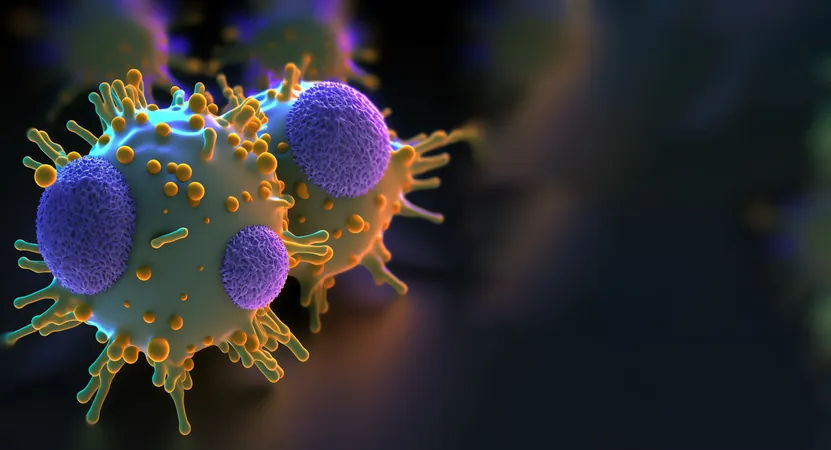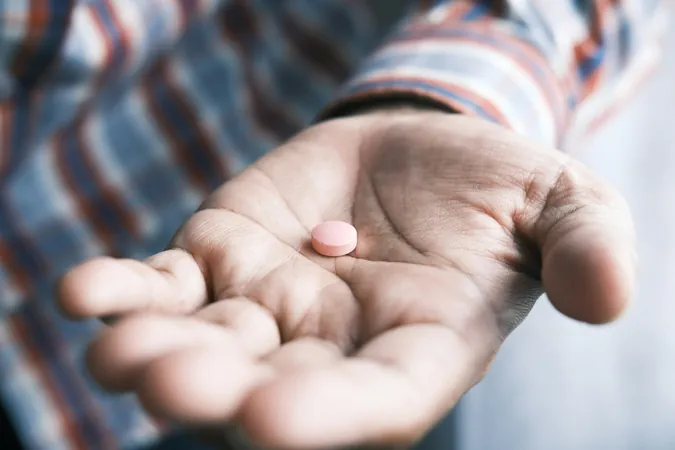
Revolutionary Findings: Can a Ketogenic Diet Supercharge CAR T-Cell Therapy?
2024-12-09
Author: Li
Recent groundbreaking research suggests that adopting a ketogenic diet might significantly boost the effectiveness of chimeric antigen receptor (CAR) T-cell therapy, a transformative treatment for various cancers. This cutting-edge study, presented by Dr. Shan Liu during the 2024 American Society of Hematology (ASH) Annual Meeting, highlights β-hydroxybutyrate (BHB)—a compound produced when the body enters a ketogenic state—as a key factor enhancing CAR T-cell function.
"Our research has unveiled that a ketogenic diet can markedly amplify CAR T-cell efficacy. BHB, one of the notable metabolites generated through this diet, plays a pivotal role in mediating this positive effect," stated Dr. Liu, a postdoctoral researcher at the prestigious Perelman School of Medicine at the University of Pennsylvania. Notably, two-thirds of patients receiving CAR T therapy report limited responses or experience relapse, making dietary modifications a potentially attractive adjunct to this already powerful treatment.
This remarkable study stands out as the first to investigate how specific dietary changes can influence the antitumor capabilities of CAR T-cell immunotherapy.
BHB's Role and the Study's Insights
In their innovative experiments, researchers evaluated several dietary regimens—including high-fiber, high-fat, high-protein, and ketogenic diets—in mice diagnosed with B-cell lymphoma. Astonishingly, the mice on a ketogenic diet exhibited superior tumor management and overall survival rates post-CAR T-cell therapy. Through further investigation, it was determined that BHB was the critical metabolite that increased following the ketogenic diet. Mice on a standard diet supplemented with BHB showed enhanced CAR T-cell proliferation and more effective tumor control compared to those without such supplementation.
Moreover, BHB appears to optimize CAR T-cell function by serving as a more efficient energy source than glucose, typically utilized by most cells. In tests using T cells harvested from lymphoma patients for CAR T-cell production, BHB supplementation in the culture medium significantly improved T-cell growth and mitochondrial function. Retrospective blood analysis of 17 patients undergoing CAR T therapy for large B-cell lymphoma revealed that higher BHB levels correlated with more substantial CAR T-cell expansion.
To further investigate the implications of BHB intake, researchers engaged healthy volunteers to monitor T-cell performance before and after BHB supplementation. The analysis indicated a remarkable enhancement in mitochondrial function of T-cells, lending credence to the hypothesis that BHB boosts T-cell activity by refining energy processing.
Caution and Future Directions
Despite the promising lab and animal study results, researchers urge caution, emphasizing that clinical trials involving actual CAR T-cell therapy patients are pivotal for validating these findings. "At this stage, we do not recommend the adoption of a ketogenic diet or the use of BHB supplements during CAR T therapy," cautioned Dr. Liu. However, the research team announced plans to initiate a clinical trial soon, focusing on cancer patients undergoing CAR T-cell therapy to explore the effects of BHB supplementation further.
In conclusion, while the prospect of a ketogenic diet enhancing CAR T-cell therapy is tantalizing, further research will be essential in determining its clinical applicability and safety. Stay tuned for more updates as this exciting field of study unfolds!




 Brasil (PT)
Brasil (PT)
 Canada (EN)
Canada (EN)
 Chile (ES)
Chile (ES)
 España (ES)
España (ES)
 France (FR)
France (FR)
 Hong Kong (EN)
Hong Kong (EN)
 Italia (IT)
Italia (IT)
 日本 (JA)
日本 (JA)
 Magyarország (HU)
Magyarország (HU)
 Norge (NO)
Norge (NO)
 Polska (PL)
Polska (PL)
 Schweiz (DE)
Schweiz (DE)
 Singapore (EN)
Singapore (EN)
 Sverige (SV)
Sverige (SV)
 Suomi (FI)
Suomi (FI)
 Türkiye (TR)
Türkiye (TR)